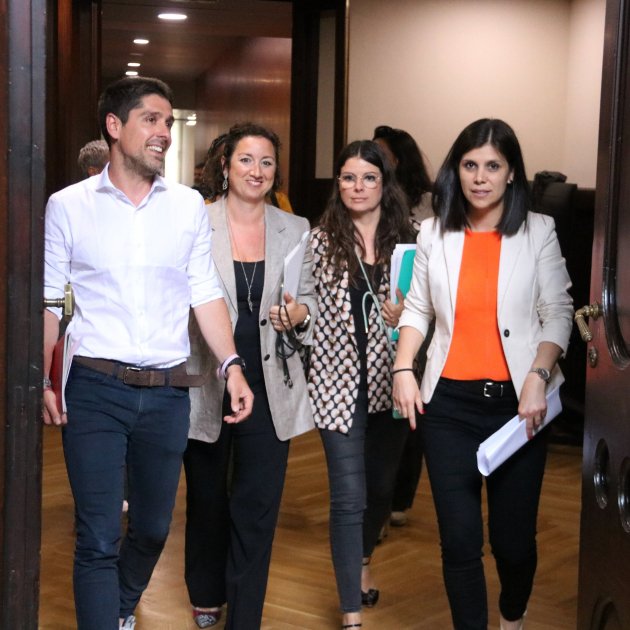A green light for the constitutional validity of the new law on language use in Catalan schools introduced by the PSC, ERC, Junts and the Comuns, after it had been held up by a blockade that lasted longer than expected. As soon as the four parties proposing the legislation had reached agreement on the ad hoc law to respond to the court imposition of a 25% quota of Spanish-language classroom time in Catalan schools, the tripartite Spanish right - Vox, Ciudadanos and the PP - decided to send it to Catalan constitutional organ, the Council of Statutory Guarantees (CGE), as a delaying tactic so that the bill would miss the 31st May deadline set by the court for the application of the 25% quota. Hence, the parties were unable to pass the law before the deadline, but they will be able to do so this week. In the meantime, the Catalan government's "Plan B", a decree law, has temporarily protected schools from having to apply the language quota, although it is also subject to appeal by the Spanish right.
The three right-wing parties sent the bill to the statutory body arguing that it was in breach of Catalonia's Statute of Autonomy and the Spanish Constitution, a claim that the CGE has now rejected. Hence, the bill is likely to be passed in the Catalan Parliament this Wednesday before the start of the government's question session. With regard to the claim of Vox, Cs and PP over the bill's omission of Spanish as a vehicular language, the CGE considers that the new law establishes "a wider use" of Spanish in the education system compared to the Catalan education act and language policy act. In this regard, the CGE notes that the new law "explicitly" includes the "curricular and educational" use of Spanish, which implies "recognizing the possibility that it could extend to the whole set of elements that make up the educational system."
The council also emphasizes that the Spanish Constitution does not establish a right of language choice, under which parents can choose the language of the language of their children's instruction, and it refers to several Constitutional Court rulings along these lines. As well, the CGE rules on the issue of the percentage of Spanish, and recalls that the decisions made by ordinary courts "do not constitute a parameter for assessing the constitutionality or statutory nature of laws." In this sense, the body argues that the decision to apply percentages is a "legitimate" educational policy option, but they point out that it is not the only one, and that it is therefore an option "of an essentially political nature" that belongs to the legislator. "Supporting the contrary view would lead to the attribution to the courts of a power of political decision-making that goes beyond the jurisdictional function granted to them by the Constitution," states the Council of Statutory Guarantees' ruling.
Thus, on Wednesday the law is likely to be passed, after two months of deadlock to find a consensus on Catalan language in classrooms. The new law defines Catalan as a "vehicular language" and Spanish as a "language of curricular use". The first vote on the bill took place in Parliament on Wednesday, May 25th, with 77% of the chamber voting in favour. That same afternoon, in parallel with the plenary session, Vox announced that for the first time since it entered the Catalan Parliament, it would take the bill to the Council of Guarantees, a body that the far right has always despised, assuring that it does no useful work. It has, however, provided them with a way to block the passage of the law for about a fortnight.
As soon as the CGE shared its ruling, the government spokesperson, Patrícia Plaja, celebrated the announcement. Speaking at the press conference after the weekly Catalan cabinet meeting, she argued that it is necessary to fight the courts' attacks on the package of actions included in this law, as well as the government's decree law on language. In fact, the decree is also now in the hands of the CGE, as the three right-wing parties repeated the same manoeuvre. Plaja stated once again that the defence of the Catalan school system must be tackled with the maximum possible unity, and stressed that the executive had already anticipated and expected that the council would give a green light to the text.
